Recent News
Catch up on the latest BioSci news, features and videos by subscribing to the School of Biological Sciences Newsletter.
-
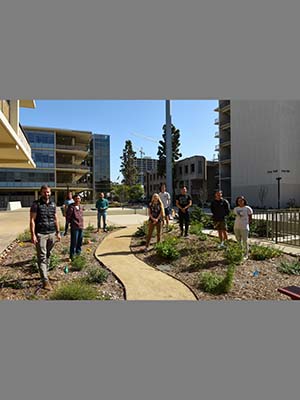
A Look into the Bonner Butterfly Garden
Zoie Andre, an undergraduate researcher in the Perry Lab, and Eleanor Terner, a recent graduate and co-founder of the Bonner Butterfly Garden, share their thoughts on their project
The Bonner Butterfly Garden is a quaint garden offering a variety of native plants for students to admire and study. The garden is a thriving ecosystem boasting a diverse variety of native San Diego plants known to attract butterflies and other pollinators. Here’s an inside look.
-
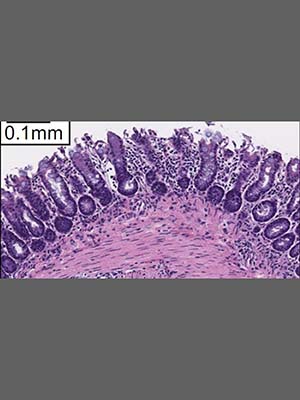
Researchers Uncover Metabolism Link to Proteins Important in Infections, Cancer and Autoimmunity
Cells release proteins called type one interferons to fight viruses and cancers. One type is known for generating bursts of type one interferons in short periods. Biologists have linked this production to metabolism, a finding that could help empower immune responses against infections and disease.
-
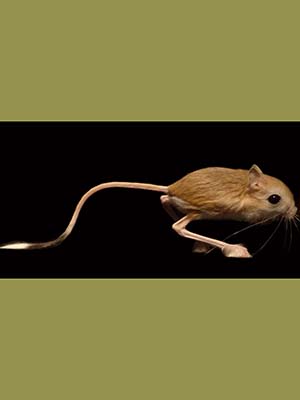
UC San Diego Biologist and Collaborators Receive $1 Million Keck Award
The award will support ongoing research into the role of inflammation in animals from birds to mammals, work that also has implications in human medicine
A multi-institutional research team that includes UC San Diego biologist Kim Cooper has been awarded a $1 million grant from the W.M. Keck Foundation to study the role of inflammation in animals, which has implications for health and skeletal development in humans.
-
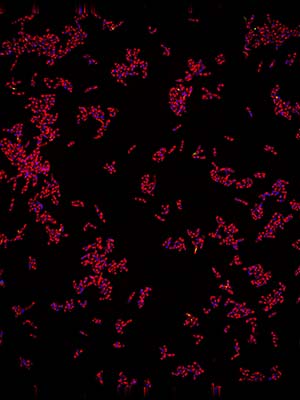
AI Accelerates the Search for New Tuberculosis Drug Targets
While a TB outbreak grows in Kansas, a biotech company spun off from UC San Diego-developed technology leverages deep learning to screen for new antimicrobial candidates
As one of the largest tuberculosis outbreaks in the U.S. unfolds in Kansas, UC San Diego researchers and their colleagues have published research describing the use of artificial intelligence tools to screen for new antimicrobial candidates to treat the disease.
-

New Insights on the Dynamics of Harmful Algal Blooms under Climate Warming
In freshwater environments, toxic harmful algal blooms threaten drinking water and wildlife. While most efforts on mitigating such events focus on reducing nutrients, researchers have found that there’s more to the story, especially when considering climate warming that could amplify such events.
-
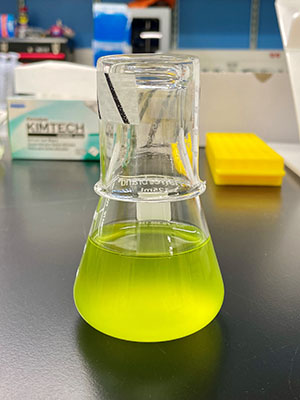
Effects of Declining Diversity Documented in the World of Microbes
Scientists in UC San Diego’s School of Biological Sciences recently investigated how declining biodiversity in tiny ecological systems unseen to the naked eye can carry significant consequences for the health of organisms and ecosystems.
-
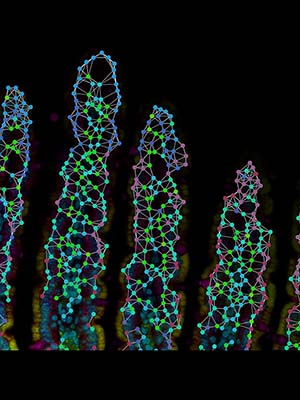
New Research Reveals How Location Influences How Our Immune System Fights Disease
Findings could pave the way for improved immunotherapies and vaccines
A new study led by a team of scientists reveals how cells known as tissue-resident memory CD8 T cells play unique and specialized roles based on where they are located. The discovery sheds light on how such cells adapt to their location and could lead to improved immunotherapy and vaccines.
-
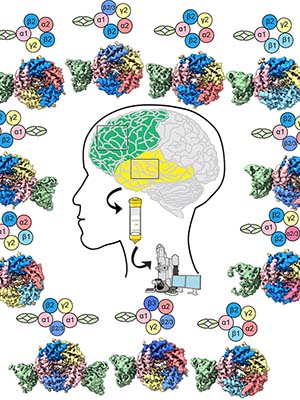
Epilepsy Patient Samples Offer Unprecedented Insights on Brain ‘Brakes’ Linked to Disorders
Advanced scientific instruments allow scientists to build a map of brain receptors, opening the door to possible novel ways to treat epilepsy and mental disorders
Specific protein receptors in the brain play a vital role in how neurons slow down or stop firing, making them targets for many disorders. Researchers have now constructed a detailed structural map of these receptors in the human brain, revealing how they assemble and how drugs bind to them.
-
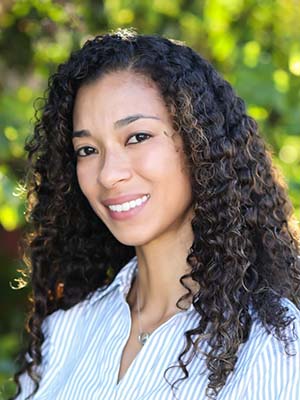
BioSci's Sonya Neal Receives Presidential Early Career Award
School of Biological Sciences’ Sonya Neal and four other faculty members from UC San Diego have been selected to receive the Presidential Early Career Award for Scientists and Engineers, the highest honor bestowed by the U.S. government to early career scientists and engineers.
-
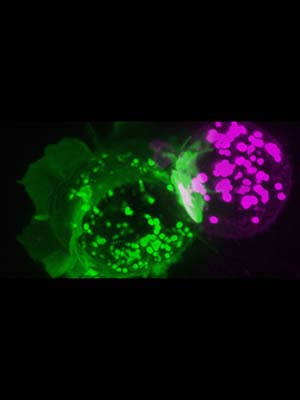
Scientists Unveil Surprising Human vs Mouse Differences in a Major Cancer Immunotherapy Target
Results of a comprehensive analysis refute assumptions that a key immune checkpoint receptor functions the same in rodents and humans
Much of our knowledge of the protein PD-1, a leading cancer treatment target, comes from studies in mice. In a comprehensive assessment of PD-1, researchers have found that PD-1 in mice is significantly weaker than the human version, providing new information on how cancer treatments are developed.
-
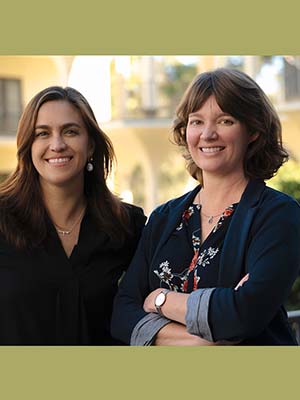
Kimberly Cooper and Elizabeth Villa Named Pew Innovation Fund Investigators
Biologists to study mysteries related to specialized bone cells during growth
UC San Diego School of Biological Sciences Professors Kimberly Cooper and Elizabeth Villa have been selected by the Pew Charitable Trusts as members of its 2024 class of Innovation Fund Investigators.
To read more about the School of Biological Sciences happenings, see the News Archives.
